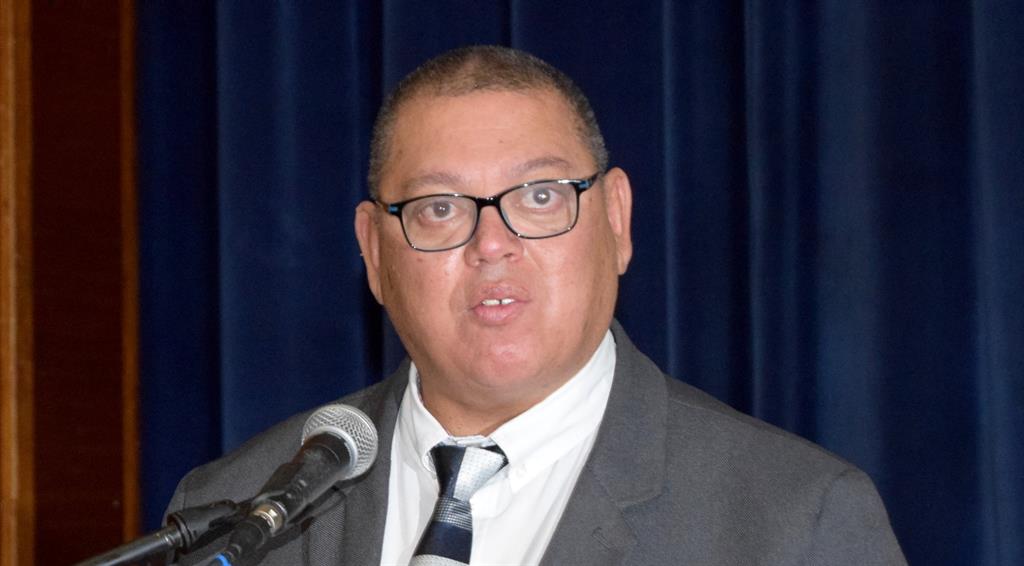Klazen issues warnings to fishing industry
High bycatches and overcatching
The Minister of Fisheries and Marine Resources, Derek Klazen, expressed his concern about several issues and made a couple of announcements in his annual address to industry stakeholders.
The Minister of Fisheries and Marine Resources, Derek Klazen, listed high bycatches within the industry, overcatches by specific rights holders, the corporate governance of fishing companies, and illegal, unreported and unregulated (IUU) fishing as pressing issues for his ministry and the industry as a whole.Bycatches
The minister said his ministry observed a worrisome trend of bycatches in the fishing industry, specifically hake, mackerel and pilchard in the horse mackerel subsector.
“This trend suggests that these landings are deliberate. I hold the view that they can be avoided and are landed intentionally for their economic value. The ministry is considering strengthening measures to control this phenomenon.” Klazen reminded rights holders that high bycatches are an indication of unsustainable management of the resource and may hurt the fisheries management system.
Overcatching
Klazen also raised concern about specific rights holders who continuously catch fish beyond the limit of their allocated quotas.
“Rights holders are cautioned that the ministry sees this and it will hurt future allocations. Also, rights holders should note that their allocation will be reduced by a percentage equivalent to their overharvest of the previous fishing season,” the minister warned.
Corporate governance
Klazen further said that the issue of corporate governance had become a challenge for his ministry.
“We have to spend a lot of time trying to solve right holding companies’ problems. This kind of unhealthy practice must come to an end.”
He called on the boards of directors of fishing companies to continue implementing their fiduciary functions in line with the Companies Act of 2004 in managing companies ethically to the benefit of their shareholders. “Ministerial information is not shared with all board members and during annual general meetings with shareholders. The board of directors is expected to be transparent and inclusive in managing fishing companies.”
IUU fishing
Klazen said that the ministry had received alarming reports of an increase in incidences linked or with potential links to IUU at Namibia’s northern coastal border.
“Fishing in Namibia’s EEZ is of serious and increasing concern as illegal, unreported and unregulated [IUU] fishing undermines efforts to conserve and manage fish stock in all capture fisheries. Due to this, we have decided to dedicate up to 50% of our control monitoring and surveillance sea operations to the northern border with Angola. The ministry will continue to strengthen its management and control measures to curb and eliminate IUU fishing through collaboration with the fishing industry and our neighbouring states,” the minister said.
According to Klazen, the ministry carried out nine sea patrol missions and 688 patrols along the coast during the current fiscal year. A further 35 aerial surveillance missions, 39 river patrols and 453 patrols on land along inland water bodies were undertaken. He expressed concern at what he termed ‘a magnitude of illegal fishing activities on inland water bodies’, saying that he intends to engage his counterparts from neighbouring countries on harmonising the laws and enforcement.
In the pipeline
The minister announced that the ministry conducted a stock assessment on bycatch and line fish species, such as kob, and will review the moratorium on kob fishing soon.
He added that the ministry and industry members have been working hard to ensure that the hake fishery maintains its ecolabelling certification status by the Marine Stewardship Council. Klazen indicated that a comprehensive consultation per fishing association would be carried out in February. “It is anticipated that the process will be finalised by 31 March 2024. The ministry is in the process of reviewing landed values for all commercial species harvested in Namibia. The landed values have not been reviewed since it was implemented in 2017. The market conditions have evolved over the past seven years, requiring the reviewing of the landed values.”
The ministry will consult with the different fishing associations on issues impacting the operations of various sub-sectors during the first quarter of 2024. This exercise has been a regular platform to engage and exchange ideas to find solutions to challenges affecting the viability of the sector and the contribution towards the national economy. “Only through these types of engagements can the government be better equipped to deal with internal and external challenges beyond our control and find ways to mitigate such adverse impacts,” Klazen said.
Scorecard
Klazen said that the ministry has prioritised the completion of the scorecard in the current financial year and acknowledged that the process has taken too long to be finalised due to its complexities.
He said there will be another industry consultation on the scorecard finalisation, considering the expansion in operations and socio-economic dynamics of the fishing sector. The ministry will also undertake a study during the 2024/2025 financial year to review the variation of fishing rights criteria. This exercise will ensure compliance, fairness and equity among right holders when varying the duration of their fishing rights. “This process allows the ministry to assess if rights holders adhere to the set variation criteria and implement applicable measures, which will inform the continuation or termination of such fishing rights,” the minister explained.
Klazen commended the industry for honouring its statutory obligation of paying quota fees and related levies.




